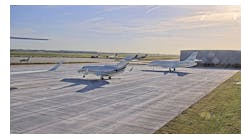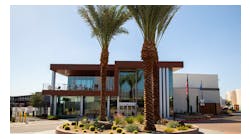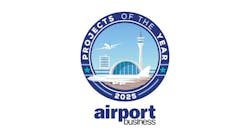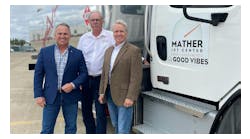Phillips 66 Aviation, a refiner and national top supplier of jet fuels and avgas to private, commercial and military aviation, recently announced its carbon offset program to its FBOs and flight operators. Done in partnership with 4AIR, the first and only rating system focused on comprehensive sustainability in private aviation, the program identifies and obtains carbon credits that fund specific projects to offset carbon emissions.
“We’re excited to announce our carbon offset program in collaboration with 4AIR as we continue to invest with new ventures and technologies that align with our ongoing sustainability priorities,” said Lindsey Grant, manager, Phillips 66 Aviation. “The first step to any new initiative is awareness and education. At Phillips 66 Aviation, we’re giving pilots and FBOs the right tools to help them on their carbon journey. We look forward to working alongside the 4AIR team, to bring sustainable offerings to our customers.”
Through the Phillips 66 Carbon Offset Program, in partnership with 4AIR, flight operators and FBOs will have access to a program that allows them to easily offset carbon dioxide emissions from jet, avgas, and even gasoline and diesel emissions generated by their vehicles and operations equipment. Carbon credits are validated and purchased utilizing leading industry verification standards, and customers receive certificates of retired credits to fulfill their sustainability plans.
“4AIR’s rating system is designed specifically for aviation and makes compliance with industry goals and sustainability efforts simple,” said Kennedy Ricci, president of 4AIR. “Phillips 66 Aviation’s journey to sustainable aviation will be met with support from our comprehensive program as we continue to see great progress in cooperation with them and their customers.”
The program is a part of Phillips 66 Aviation’s goal to support the reduction of carbon emissions. Phillips 66 plans to convert its San Francisco Refinery in Rodeo, California, into one of the world’s largest renewable fuels facilities, enabling it to produce sustainable products, including sustainable aviation fuel and renewable diesel by 2024. SAF has been shown to reduce carbon lifecycle emissions by up to 80% compared to traditional jet fuel. At present, SAF has limitations around supply availability, including scalability, manufacturing capability and policies.
To highlight, Phillips 66 Aviation FBO Fontainebleau Aviation, which is known for offering renowned service and state-of-the-art amenities to operators flying into its Miami-Opa Locka airport facility for more than 30 years, now actively offers carbon offsets to its customers through the Phillips 66 Carbon Offset program. In addition, the FBO’s gasoline and diesel emissions generated by the company’s refuelers, ground service equipment and vehicles have been offset since November 2021. This is just the beginning of Fontainebleau’s journey to reduce its carbon footprint.
“As SAF continues to be a focus within the industry, we find it necessary in doing our part to improve our planet and offset emissions however we can,” said Bobby Courtney, VP of aviation at Fontainebleau Aviation. “It is crucial for all FBOs to acknowledge their carbon footprint and take the necessary steps to lighten it. In affiliation with Phillips 66 Aviation, we are proud to be an industry trailblazer where our flight operators have the ability to offset their emissions.”
As one of the largest refiners in the nation, Phillips 66 Aviation plans to become a leader in SAF production while remaining a top fuel choice for FBOs and flight operators.
To participate in the Phillips 66 Carbon Offset Program and begin offsetting your emissions, contact 4AIR or a Phillips 66 Aviation representative.



